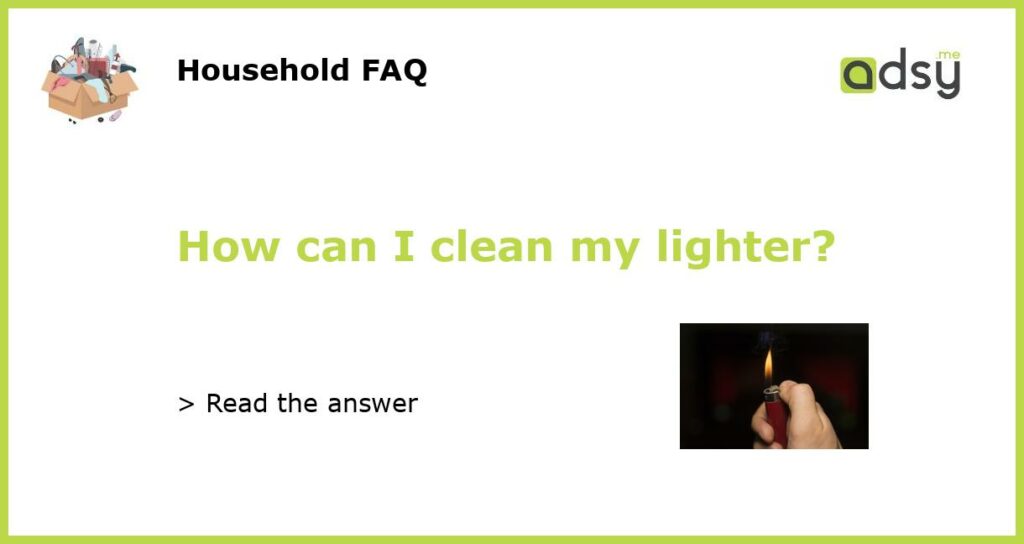Why is it important to clean your lighter?
A lighter is an essential tool that is often used to light cigarettes, candles, or gas stoves. However, a dirty lighter can be a safety hazard and may not work effectively. By ensuring that your lighter is clean, you can prolong its lifespan and avoid any potential accidents that may occur.
What materials can be used to clean your lighter?
There are several items you can use to clean your lighter, such as rubbing alcohol, a toothbrush, a cotton swab, or a can of compressed air. Rubbing alcohol is an effective cleaning agent that can remove any dirt or debris inside the lighter. A toothbrush or cotton swab can be dipped in the alcohol and gently scrubbed inside the lighter. Compressed air can also be used to blow out any dust or dirt inside the lighter.
How should you clean your lighter?
First, make sure that the lighter is not ignited and is empty of any fuel. Remove the safety cover and take out the fuel tank. Dip a toothbrush or cotton swab in rubbing alcohol and gently scrub any visible dirt or debris around the lighter’s ignition and fuel cells.
After you have cleaned the visible areas, the next step is to clean the inside of the lighter. Use a cotton swab dipped in rubbing alcohol and gently clean the flint wheel and adjacent areas. After that, use a can of compressed air to blow any excess debris out of the lighter.
How often should you clean your lighter?
You should clean your lighter periodically, depending on how often you use it. If you use your lighter frequently, you should consider cleaning it once a month. However, if you use it less frequently, you can clean it every 2-3 months. Remember, a dirty lighter not only poses a safety risk but also requires more fuel to operate effectively.
What are some tips for maintaining your lighter?
Always use high-quality fuel that is designed for your lighter. If you use low-quality fuel, it can produce impurities that can clog the lighter’s jets and cause damage. Additionally, keep your lighter stored in a cool, dry place; exposure to high heat or moisture can damage it. Always refill your lighter before it runs out of fuel, and avoid over-filling it as it can cause spills that can damage the lighter’s ignition.






